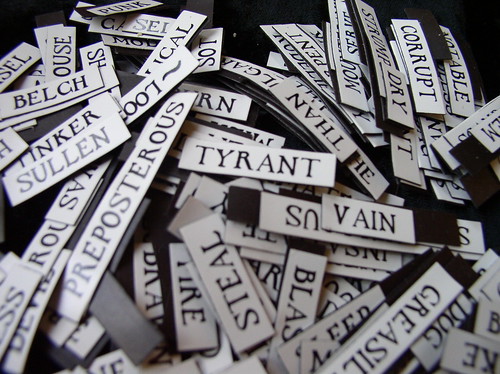How did Shakespeare become so great? Economically speaking, it all had to do with market economies—at least according to the New York Times:
Those who paid could enter and see the play; those who didn’t, couldn’t.
By the time Shakespeare turned to writing, these “cultural paywalls” were abundant in London: workers holding moneyboxes (bearing the distinctive knobs found by the archaeologists) stood at the entrances of a growing number of outdoor playhouses, collecting a penny for admission.
At day’s end, actors and theater owners smashed open the earthenware moneyboxes and divided the daily take. From those proceeds dramatists were paid to write new plays. For the first time ever, it was possible to earn a living writing for the public. […]
The stark findings of this experiment? As with much else, literary talent often remains undeveloped unless markets reward it.
The authors—Scott Turow, president of the Authors Guild; Paul Aiken, executive director of the guild; and James Shapiro, who teaches at Columbia—see parallels between Shakespeare’s time and today. The growing attitude that all information should be free online, and that copyright impedes innovation, they argue, ultimately hurts writers:
Their theory is that if we severely weaken copyright protections, innovation will truly flourish. It’s a seductive thought, but it ignores centuries of scientific and technological progress based on the principle that a creative person should have some assurance of being rewarded for his innovative work.
Certainly there’s a place for free creative work online, but that cannot be the end of it. A rich culture demands contributions from authors and artists who devote thousands of hours to a work and a lifetime to their craft. Since the Enlightenment, Western societies have been lulled into a belief that progress is inevitable. It never has been. It’s the result of abiding by rules that were carefully constructed and practices that were begun by people living in the long shadow of the Dark Ages. We tamper with those rules at our peril.
My students look at me in horror when I tell them that virtually no authors make a living from their writing. They desperately want to believe it’s possible, but like Turow, Allen, and Shapiro, I can’t believe that dispensing with copyright is helping. It’s a strange concept to me: do we expect painters to give away their paintings, or actors to perform at no charge? Why are words—and that other frequently pirated art, music—somehow different?
Incidentally, if all this talk of business has got you down—and you’d rather think about how Shakespeare became so great from a literary standpoint—here’s University of Michigan professor Ralph Williams on Shakespeare’s “appalling honesty” and why Shakespeare’s work continues to resonate today.
And for more thoughts on writing for free:
- Lee reflects on the recent sale of the Huffington Post to AOL and what it means for the site’s unpaid writers
- Steve Almond makes a case against “writing for karma”


